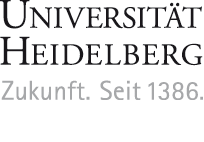| Lecturer: | G. Kanschat |
|---|---|
| Assistants: | D. Beigel, S. Meggendorfer, P. Siehr |
| Class data: | LSF, MÜSLI |
| Lectures: | Tue 14-16h, Mathematikon, HS Thu 14-16h, Mathematikon, HS |
| Tutorials: | Tue 11-13h, Mathematikon, Seminarraum 11 (engl) Wed 14-16h, INF 288 HS3 (german) Wed 18-20h, Mathematikon, Seminarraum C (engl) |
Remarks:
Lecture notes, which will be updated during the semester.
Further reading:
We will prepare weekly homework assignments. The purpose of these assigments is training the subjects learned in class and developing an understanding for the taught concepts. The assigments are essential for acquiring the competences taught in the class and tested in the final exam.
The homework assignments should be prepared in small groups discussing the steps of the solution and agreeing on the written version handed in to the tutors. The groups can change over the semester, but students are advised to seek some continuity in their own interest. The written assignment has to be well structured and documented, a simple list of formulas is not sufficient to be reviewed. Homework assignments can be prepared in English or German
Theoretical homework will be evaluated according to completeness and mathematical correctness. The assignments will be returned with comments of the tutors. There will be no points given and accumulated over the semester.
Programming homework can be handed in in any widespread programming language. Programming advice will only be given for C++ and Matlab/Octave, possibly Python. Programs have to be documented and must be handed in with proof of function. Technical details wil be discussed with the tutors.
There have been several questions about the programming exercises. In the following we provide some informations about two programming languages: MATLAB / GNU Octave and C++. You can use any other language, but we won't provide support.
MATLAB is a commercial software used by many companies. A big advantage is, that MATLAB is very easy to learn.
You can get MATLAB from the URZ for free here.
Also it is installed in most Computer Pools. You can find a list of the pools here .
GNU Octave is the free equivalent to Matlab, which is in most cases compatible to MATLAB Code. Usually it is installed on each linux computer,
if not then check your package manager. Or download it directly from the Webpage.
I gave an introduction for first-term students in the "Vorkurs". The course was in German - you can find the slides here .
(The example-code for max(a,b,c) wrong.)
If you find a good tutorial in English, then please tell us the url, sothat we can put it on this webpage. This tutorial is "ok".
C++ is one of the most commonly used programming languages. If you are interested in numerical analysis for your studies (bachelor / master thesis) you eventually learn to programm in C++. Here you can find tutorials in English 1 , English 2 and German.
